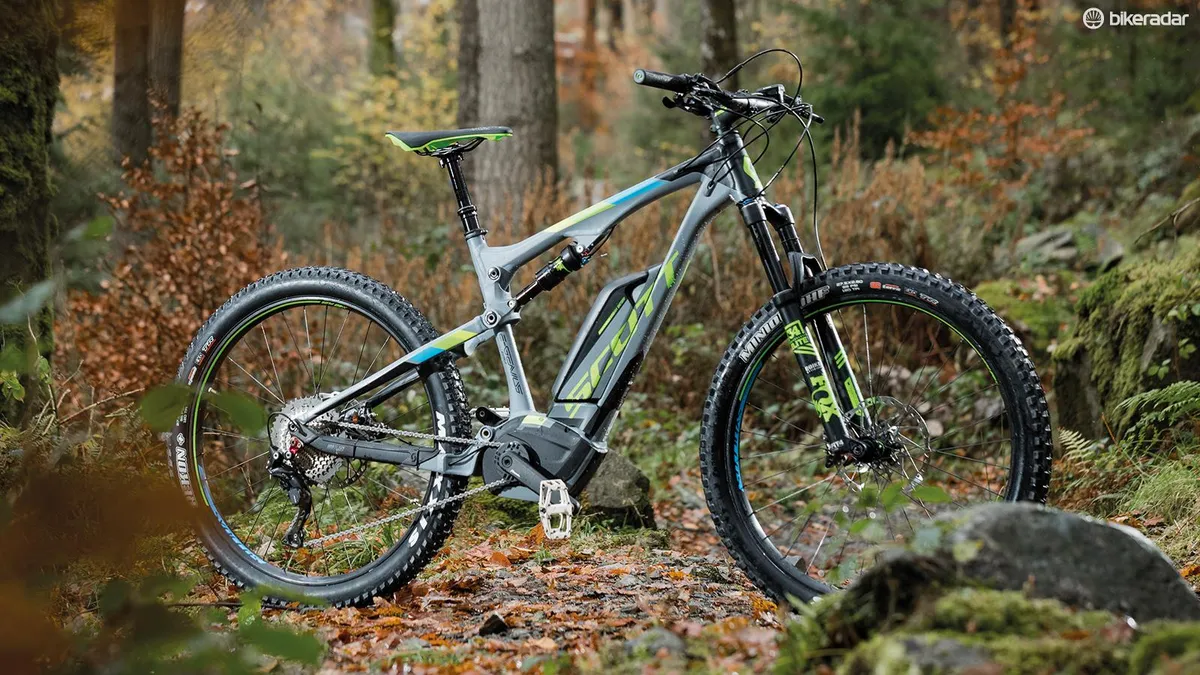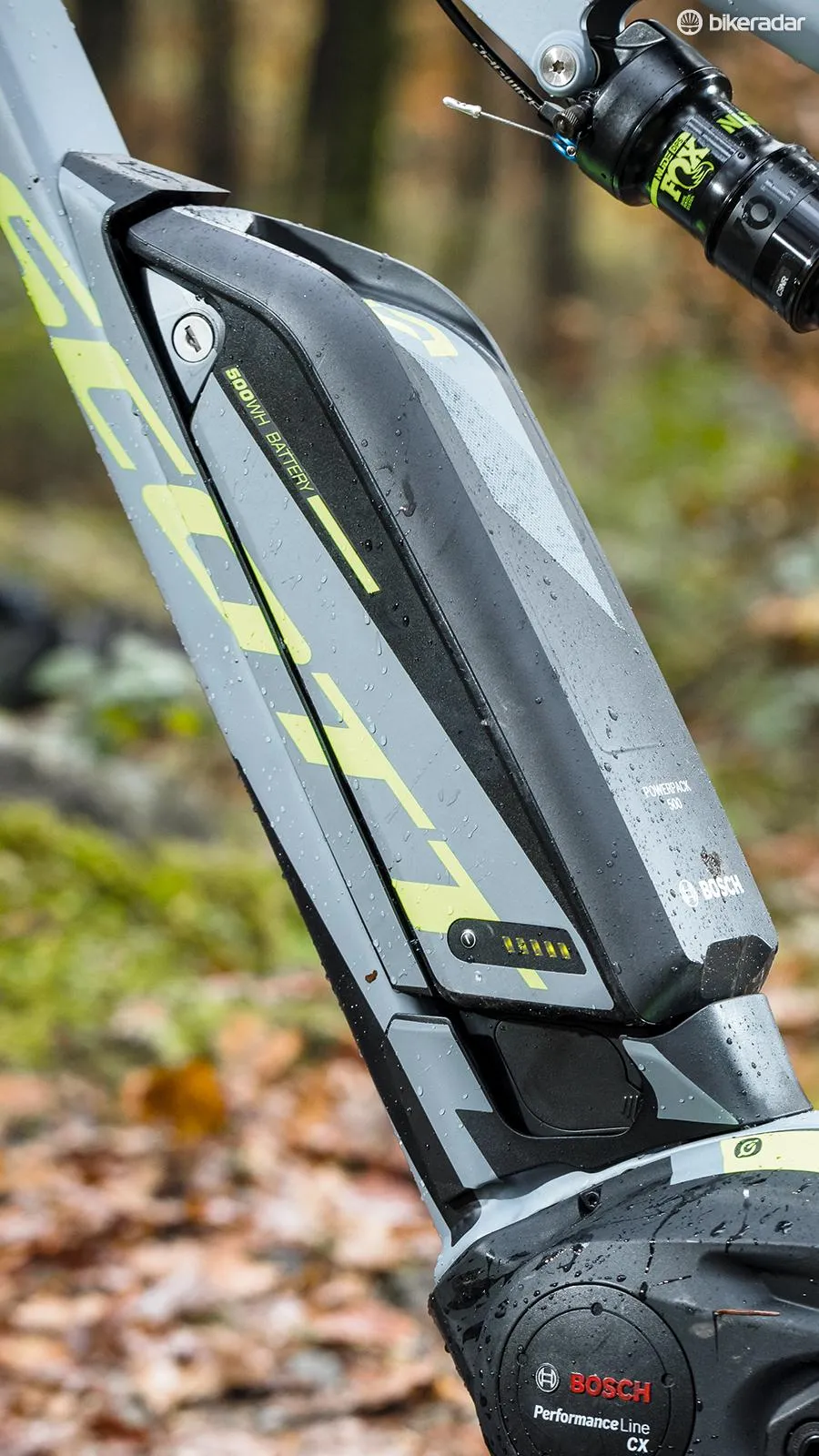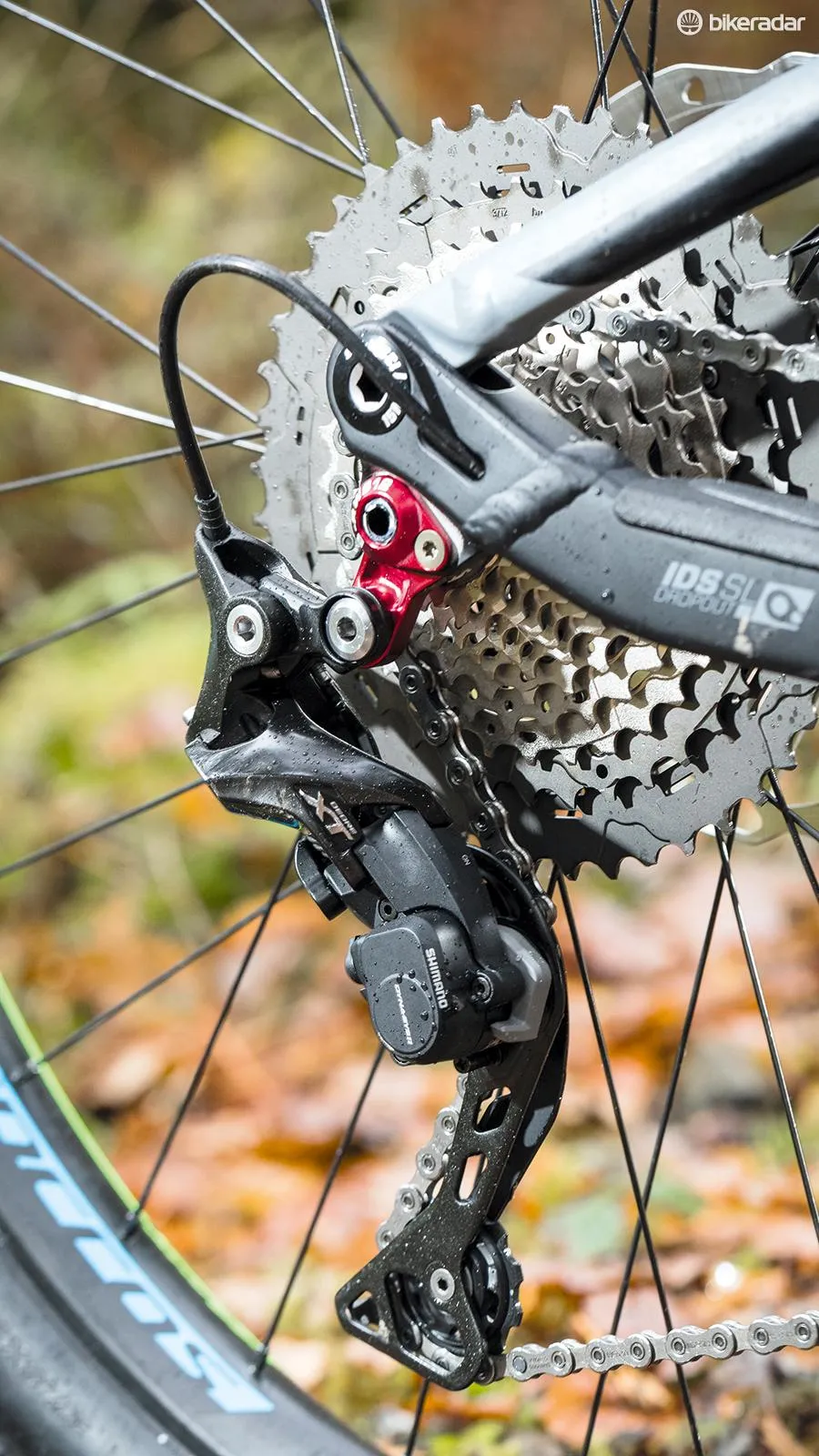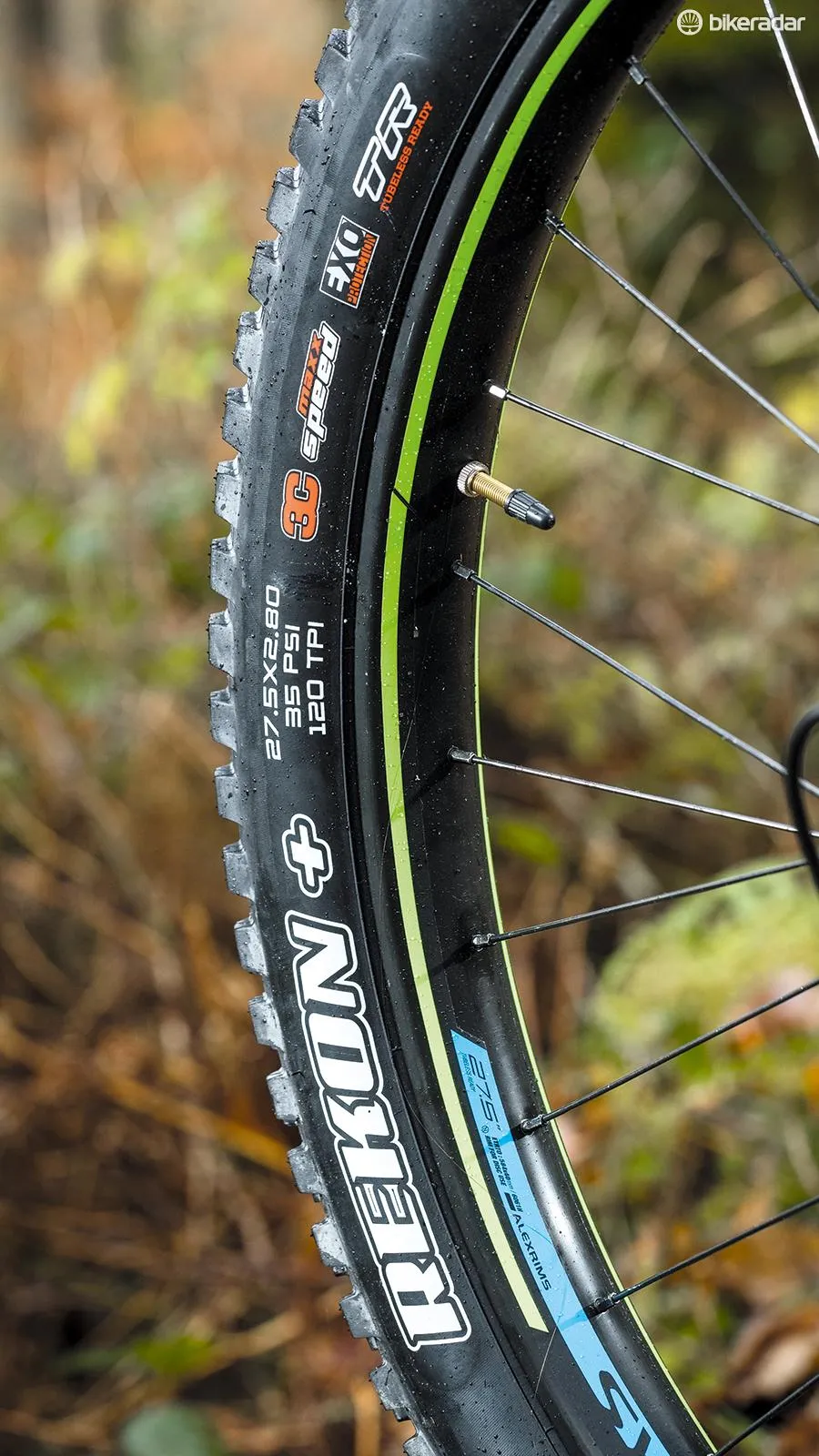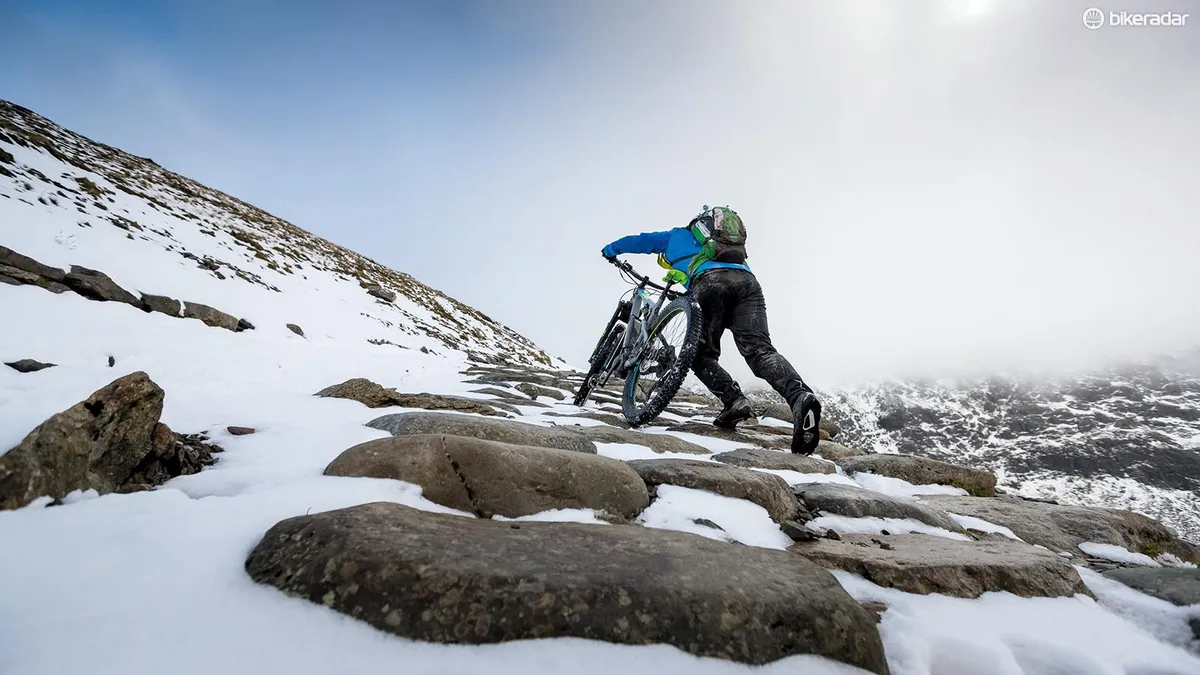The Genius is Scott’s do-it-all trail and enduro bike, but with plus tyres and a Bosch motor, it’s pretty unstoppable and I tested it up a mountains in Wales — Snowden.
Its USP is the three-position fork and shock TwinLoc system, giving Open, Traction and Short Travel Climb mode settings.
In open mode the frame has 130mm of travel, and the fork 140mm while selecting the traction mode reduces the frame’s travel to 90mm and keeps the fork open.
In the lockout mode both are locked. I only used the system once in testing, up the steep access road to the Llanberis path — with motor added assistance, pedalling efficiency was rarely an issue. As such, the TwinLoc lever was a largely unused addition to a busy handlebar and forced the Fox Transfer post’s lever into an ungainly position.
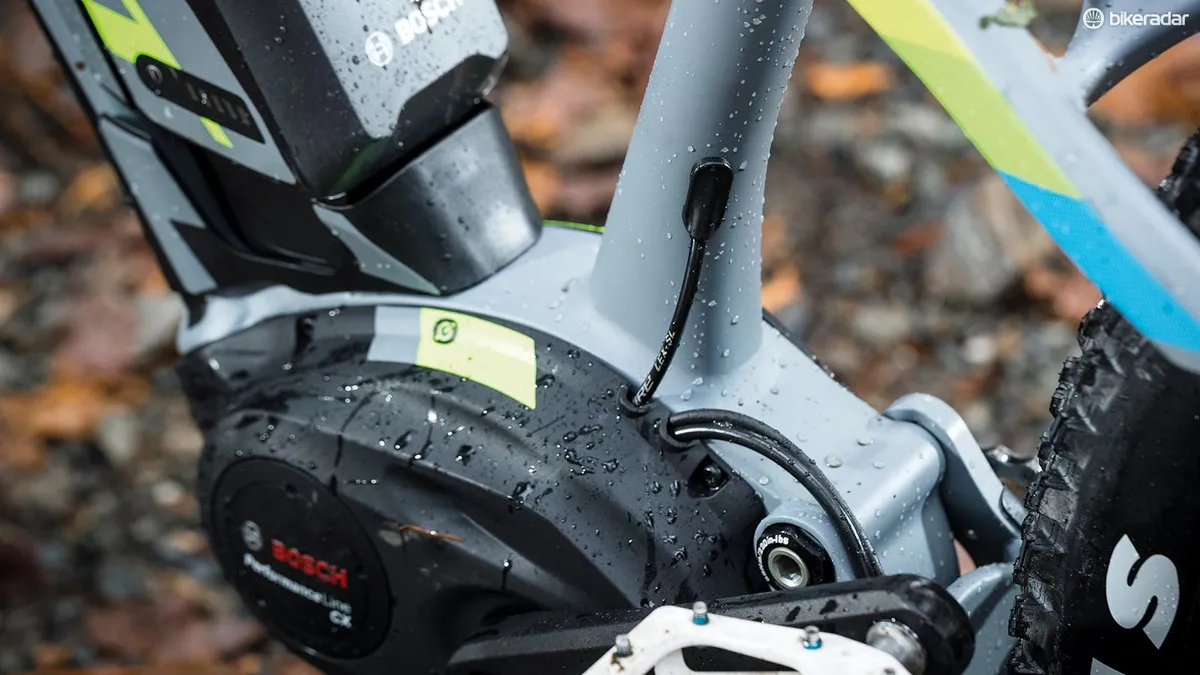
Scott uses Bosch’s Purion Display, which gives battery and power level info, along with selectable data on speed or range. It’s mounted next to the grips, so also allows you to change power mode without releasing your grip.
While this is handy, the mode selection buttons give very little feedback and with thicker gloves need a good jab to work. The display is clear, and with a micro USB port, can be checked with diagnostic software if anything goes wrong.
The Bosch’s power delivery is much more punchy than the Brose motor, and the assistance comes much quicker, most of the time. Occasionally it can get caught out, leaving you without assistance longer than you’d like, but this is infrequent in my experience. The five levels of assistance are handy to have for fine-tuning your battery life, and I didn’t end up caught short on a ride.
Aside from the motor, the Scott was relatively impressive. The suspension on the Genius has been criticised for being too linear, with not enough mid-stroke support, and this is the case here again. However testing it back-to-back against the Specialized Turbo Levo FSR Comp 6Fattie, it actually provided a touch more support, meaning it was happier pumping on the trail, and wallowed less under power — and volume spacers can be added to increase the progression.
Watch how the Scott E-Genius 710 Plus performed against two other e-bikes up Mt. Snowden
Through trail centre twists and turns it’s a lively ride that sustains speed well. While none of the e-bikes I've tested have been hugely agile, at average speeds the Genius was fun to ride — happy to be played around with but still stable and confidence inspiring enough to keep you out of trouble in technical terrain.
There are two geometry settings, adjustable with a flip-chip in the linkage design, but I generally rode in Low. While the geometry isn’t particularly long or low (67.5-degree head angle, 441mm reach) the weight of the bike and the confidence up front from the Maxxis Minon DHF tyre meant I rarely felt the need to back off on steep and loose terrain — the extra mass of the bike giving the stability the angles might not.
On the face of it, the tyres are a real highlight on the Genius. Up front the 2.8 Minion DHF is the plus tyre I’ve been waiting for, with a tread pattern that’s a well-deserved favourite in traditional sizes, along with a triple compound build for extra grip in a range of conditions.
Out back, the Rekon provides decent amounts of rear wheel traction, ideal for laying down the power. However, I ended up ripping the rear tyre on the rocks while hooning down Snowdon.
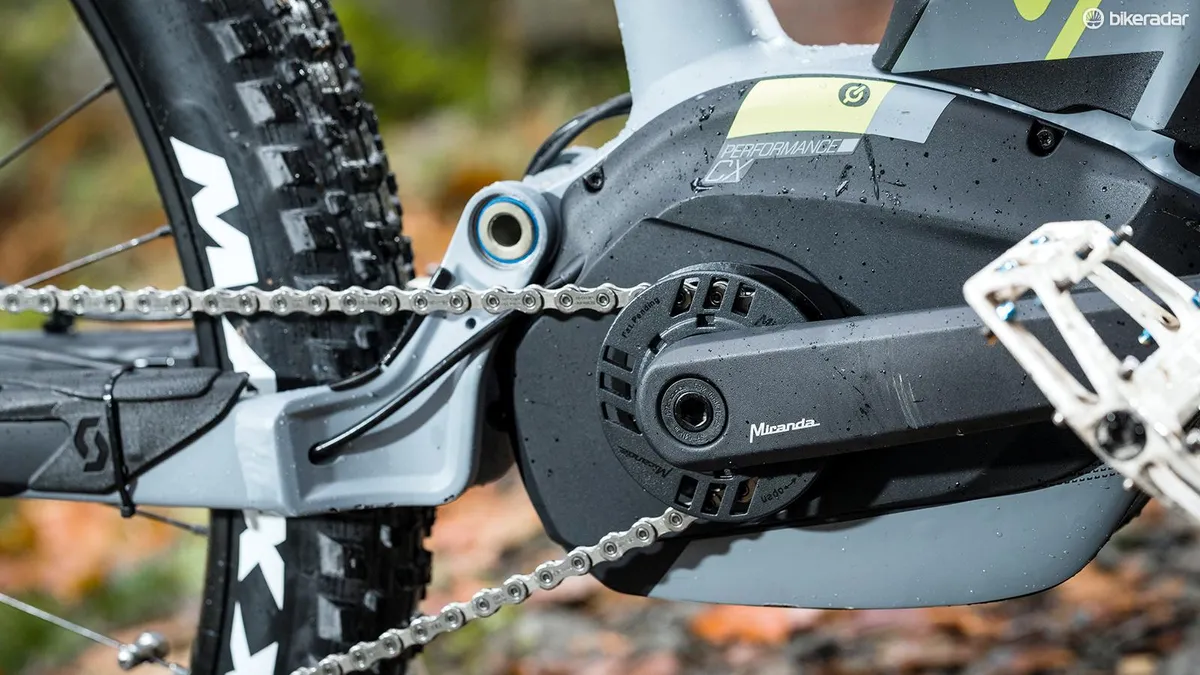
The tyres are fitted to Syncros wheels, with a decent 40mm internal width. The wheels come tubeless ready, however I needed to re-tape them from new.
At the front of the Genius is a set of Fox 34 Performance Elite forks, with the FIT4 damper. The damper is one of the best out there, and despite not having the slippery smooth Kashima coating, with the extra weight of the motor, I never felt the forks feeling unduly harsh.
However, the 34mm chassis lacks the stiffness of the 35mm chassis that the Yari on the Specialized Turbo Levo FSR Comp 6Fattie and Mondraker e-Crafty R+ provides, so on steep terrain and in higher load corners, there’s some noticeable flex up front.

The running gear is all decent Shimano kit, with a mix of SLX and XT, including the widest ranging XT 11-46t cassette. While the range is great, in my experience the 46t sprocket is grumbly, unless your chain is really well lubed.
The XT brakes with 200mm rotors front and rear made pulling up to a stop as prompt as you’d like. While Syncros finishing kit is Scott’s own brand, it’s generally decent quality. A Fox Transfer post finishes off the package nicely.
While the Genius has roots in enduro, the E-Genius was the best all-round bike up against the Specialized Turbo Levo FSR Comp 6Fattie and Mondraker e-Crafty R+ on Snowden. With tuned rear suspension and a headtube slackening angleset installed, save for it’s length, this would be a really attractive, aggressive e-bike. Even as it is, its weight and tyres meant it was confident on nearly every trail I threw at it.
